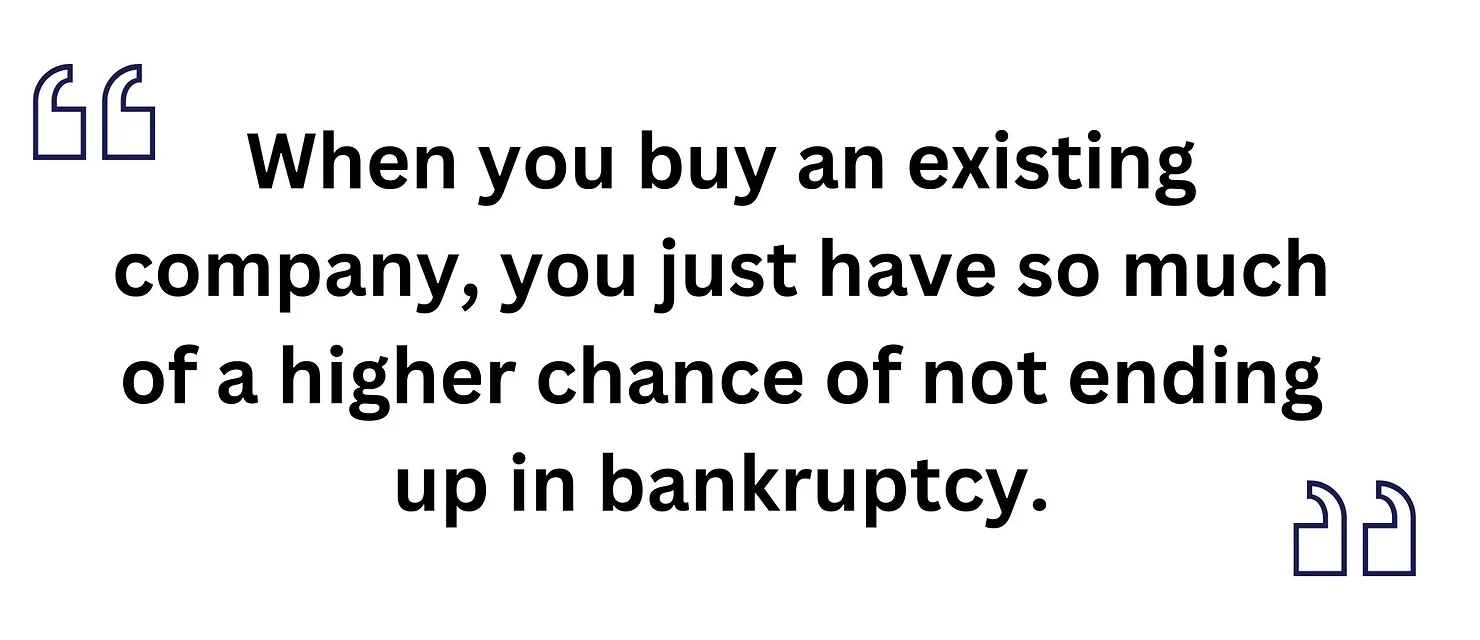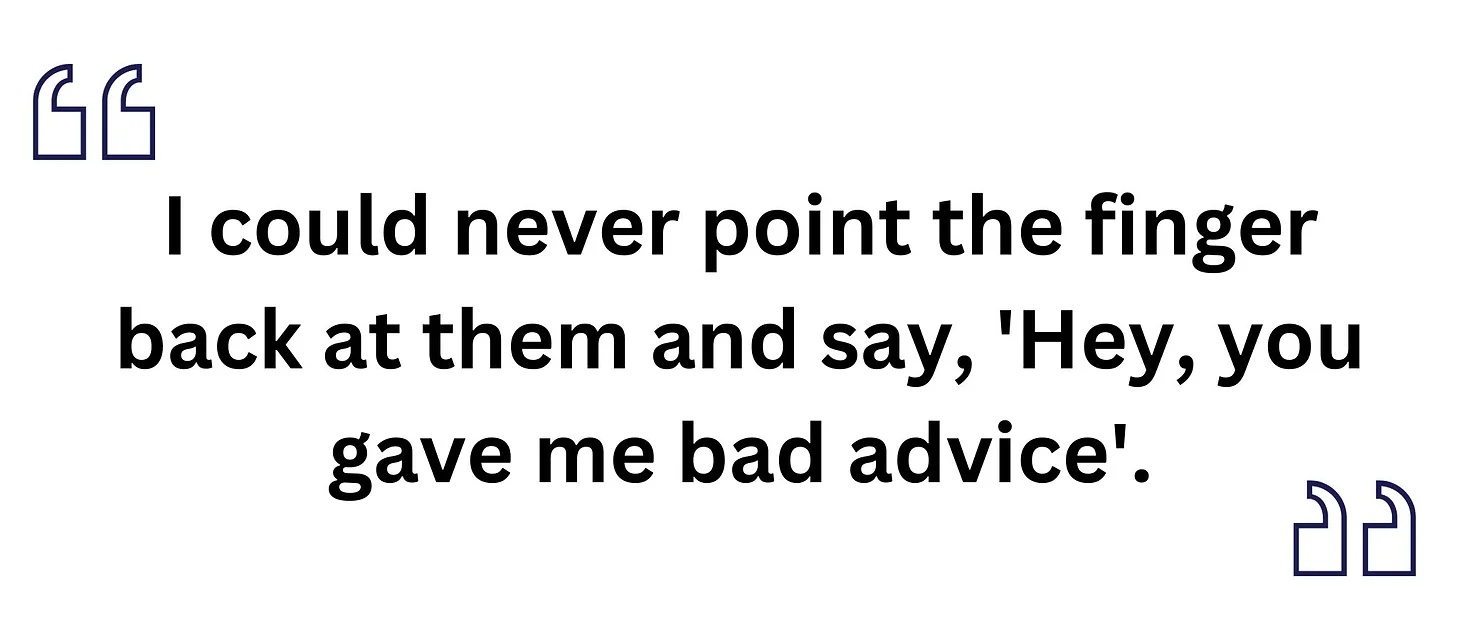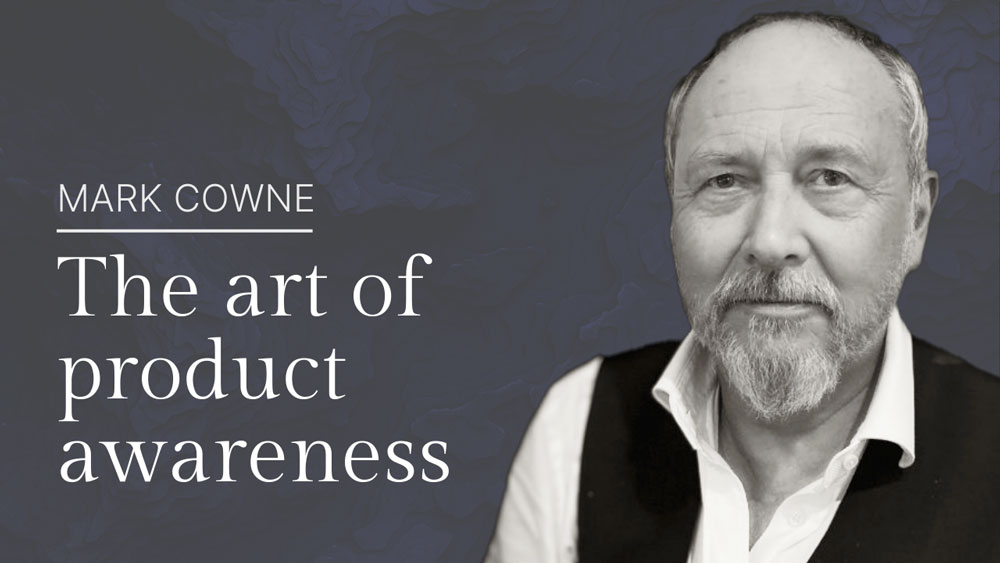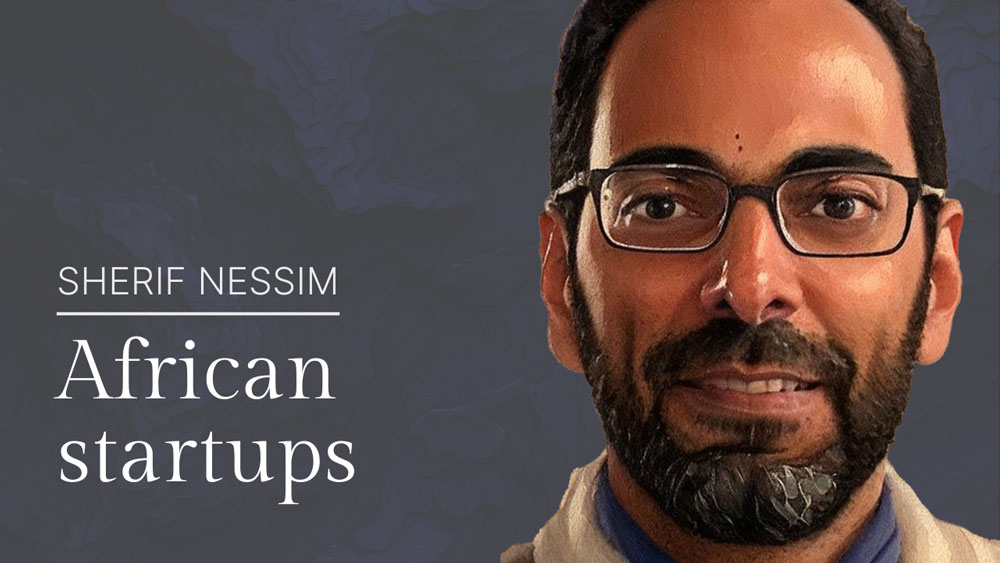Samanah Ali
7
min read
Building for Success: Embracing Change and Continual Development in Business
Iggy Domagalski
CEO | Wajax

Continuous development
There is one lesson Iggy Domagalski consistently repeats to his teenage twins: "It's okay to change your mind if you get new information."
Domagalski's own life as a successful entrepreneur demonstrates that it is not only okay but important to welcome change.
"I'm very open to changing my mind if I get new and better information. That's why when I'm making larger decisions, I'll consult a whole bunch of people and try to get a whole bunch of different views on it," he said.
Domagalski is the president and CEO of Wajax, Canada's longest-standing industrial products and services provider. The company has been running for 165 years, which is nine years older than Canada itself, and has over 30,000 customers.
A few years back, Domagalski’s career wasn't even close to where it is now.
In 2002, he received a Bachelor's degree in Finance and Accounting from the University of Manitoba. Naturally, after graduation, he found himself working in the same field.
Domagalski’s first experience working for Investors Group allowed him to grow and succeed in a number of different roles. He spent some time on the trading floor, in sales, training operations and in a few other positions, which allowed him to get a good grip of the business landscape.
"It didn't seem like a fortunate experience when it was happening to me at the time, but looking back, it was the most fortunate experience and that was getting pushed into roles that I was not ready for," he said.

After five years of working for different companies in diverse roles, Domagalski's mentor, Mike, asked him if he would be interested in exploring something new on the West Coast of Canada. As someone who is always ready to welcome change, Domagalski was on board right away.
This was the first time he was introduced to the idea of buying businesses and starting a search fund. Mike particularly focused on B2B industrial businesses, an area he had zero expertise in at the time. Still, he was ready to welcome change and decided to invest in this new opportunity.
"There is knowledge that you need to have, like specific to that industry, so that you can serve the customers and just not make too many silly decisions, but when I had an opportunity to work at all those different departments, all companies have HR, all companies have some degree of training, all companies have a finance group, all companies do sales," Domagalski said.
"It was actually quite similar and that didn't occur to me until after I was in this industrial realm for quite some time."
In Domagalski's path to acquire businesses, he's also launched close to a dozen startups. That's one thing he would rather never do again as most of them didn't work out.
This isn't a unique failure. In fact, around 90 percent of all startups are bound to fail. Roughly 10 percent of them don't even make it past their first year.
One of the primary distinctions between launching a company from the ground up and acquiring an existing one lies in the probability of ending up bankrupt.
"When you buy an existing company, you just have so much of a higher chance of not ending up in bankruptcy," Domagalski said.
"Going back and you know, if I could do it all again, myself, I would do less startups. I would not have done those startups. I would have instead used that capital and bought more existing businesses and just built those better and stronger and bigger."
Building relationships as a leader
Domagalski takes pride in asking for help. It's how he managed to make some of the best decisions in his career.
"I had a really, really great mentor. He was 20 years my senior. He had done a lot of stuff and seen a lot of things, and he was really able to coach me along to help me become successful," he said.
"We had a great management team at all the companies that we worked in together, but he was like my main guy, and still is today."
According to 2022 statistics, only around 37 percent of professionals have a mentor. Another study reveals that over 80 percent of CEOs believe that investing in personal development, and in their ability to welcome change, has helped them avoid blunders in their organizations.
Domagalski's previous mentor soon retired, but he found a few more at Wajax. The company has a board of 10 people who are the backbone of its decision-making process.

"They're so smart, these are some of the most incredible leaders I've ever met, they're super supportive of me and then I have access to them whenever I want," he said.
"I feel pretty lucky that I've kind of had this one main mentor my whole life, he's still there, and I get to access him and all these other ones now too."
He doesn't need them for every single decision that needs to be made for the company, but their guidance assists him in making the five or six large and critical ones during the year.
The question that then comes into the minds of some is, who takes accountability?
Domagalski believes that ultimately, the decision is his, so the accountability belongs to him as well.
When he sought advice from people, it was usually on a 20 to 30-minute phone call, which is not long enough to paint an exact picture of the situation he'd be in.
"I try to download as much of the context as I can to whoever I'm asking, but that's all they're getting. That's all the information that they have, so they just give me the best information that they can based on that limited data set," Domagalski said.
"I could never point the finger back at them and say, 'Hey, you gave me bad advice'."
In fact, he takes it more as a different perspective than advice.
"I want to hear, have they had to make this decision in the past themselves? What decision did they make, but more importantly, what are the things that they considered when making the decision?" Domagalski said.
"For me, understanding their thought patterns and what questions to ask is almost more important than what they did or didn't do."
Domagalksi is also a part of the Business Council of Canada, which consists of a group of Canadian CEOs who help each other in different capacities. Unlike a peer group, people in this council don't share their personal struggles, but it is still a great place to network with successful entrepreneurs.
"I've made relationships with a bunch of folks in that group. I've probably got about 10 or 15 people who run companies that are far bigger than mine, that are further on in their careers than me and I've been ultra, ultra-successful," Domagalski said.
"I know they're super busy, so I'll kind of wait until I got a couple of questions that I really want to ask them and just get on the phone for 15 minutes and pepper them with questions and let them get on with their day."
Apart from these mentorship opportunities, Domagalksi has also taken advantage of one-on-one coaching throughout his career.
Business depends on the community for further growth
One of Domagalski's key principles is ensuring that the companies he acquires do not suffer any drastic and uncomfortable changes.
"We're not the company that goes in and slashes and lays people off. We think that the people that are there need to be there, and so that's often a really comforting thing for the seller," he said.
Wajax has a leadership team of 40 people. Instead of laying people off, Domagalski spends a good amount of time and money into developing the existing employees.
This could take the shape of group coaching, weekly courses or other programs that allow them to develop their skills and perspectives in a way that would help them do their job more efficiently.
"There are these wonderful, super talented leaders, they just lack a little bit of external perspective, so we pay for them to go outside and get it," Domagalski said.

(Wajax website’s featured photo)
According to a study by the Association for Talent Development (ATD), companies that invested in training their staff experienced a 24 percent higher profit margin than those that didn't.
Internally, he brings back a strategy that he greatly benefited from during his time with Investors Group, which is rotating people into different positions.
"I love moving people around like that, giving them completely different perspectives. Later in their career, as they become more senior leaders, they've seen all the pieces of the business, not just one little silo."
Wajax also offers technical skills training for employees who are not keen on taking up any managerial role in the future but would benefit from amping up their technical skills.
While a lot of money is put into such initiatives, Domagalski doesn't consider it a sacrifice in terms of cost.
A survey conducted by the Business Development Bank of Canada reveals that 85 percent of the country's most successful entrepreneurs (who participated in the survey) prioritized training as a critical strategy for growing their business.
"They might leave if they don't get that change so I think the cost is higher if somebody leaves the company, whereas now you can change some roles. Yeah, there's a little bit of kerfuffle, but the person didn't leave," he said.
"You can still ask them questions about their old role, whereas if they leave the company completely, that's more of a problem and more of a cost."
In addition to investing in the skills development of his company's employees, Domagalski also believes in giving back to the community. He currently sits on the board of the Kids Cancer Care Foundation and supports a number of different community initiatives.
Two of the largest partnerships with Wajax include Food Banks Canada and the Canadian Cancer Society.
"When I would interview people, 100 percent of the time when I would ask 'why would you want to work at Tundra versus all the other places you can work at?' One of the reasons was always 100 percent of the time, 'I love what you do in the community, and I want to be a part of that.' We didn't do it for that reason, we did it because it was the right thing to do, but it had all of these wonderful benefits," Domagalski said.
"The number of applicants and roles, the quality of applicants and roles increased and we were able to hire better, our team was more engaged, our customers liked it, it was just probably one of the best investments that we ever made."
References
The advantages of Training your employees. BDC.ca. (2023, June 20). https://www.bdc.ca/en/articles-tools/employees/manage/why-training-employees-good-for-your-bottom-line#
Howarth, J. (2023, March 16). Startup failure rate statistics (2023). Exploding Topics.https://explodingtopics.com/blog/startup-failure-stats
Investment in employees in key to business success. University of North Georgia. (n.d.).https://ung.edu/continuing-education/news-and-media/investment-in-employees.php
Personal development statistics in 2022: Everything you need to know. DreamMaker. (2022a, April 19).https://dreammaker.co.uk/blog/personal-development-statistics/
Personal development statistics in 2022: Everything you need to know. DreamMaker. (2022b, April 19).https://dreammaker.co.uk/blog/personal-development-statistics/



